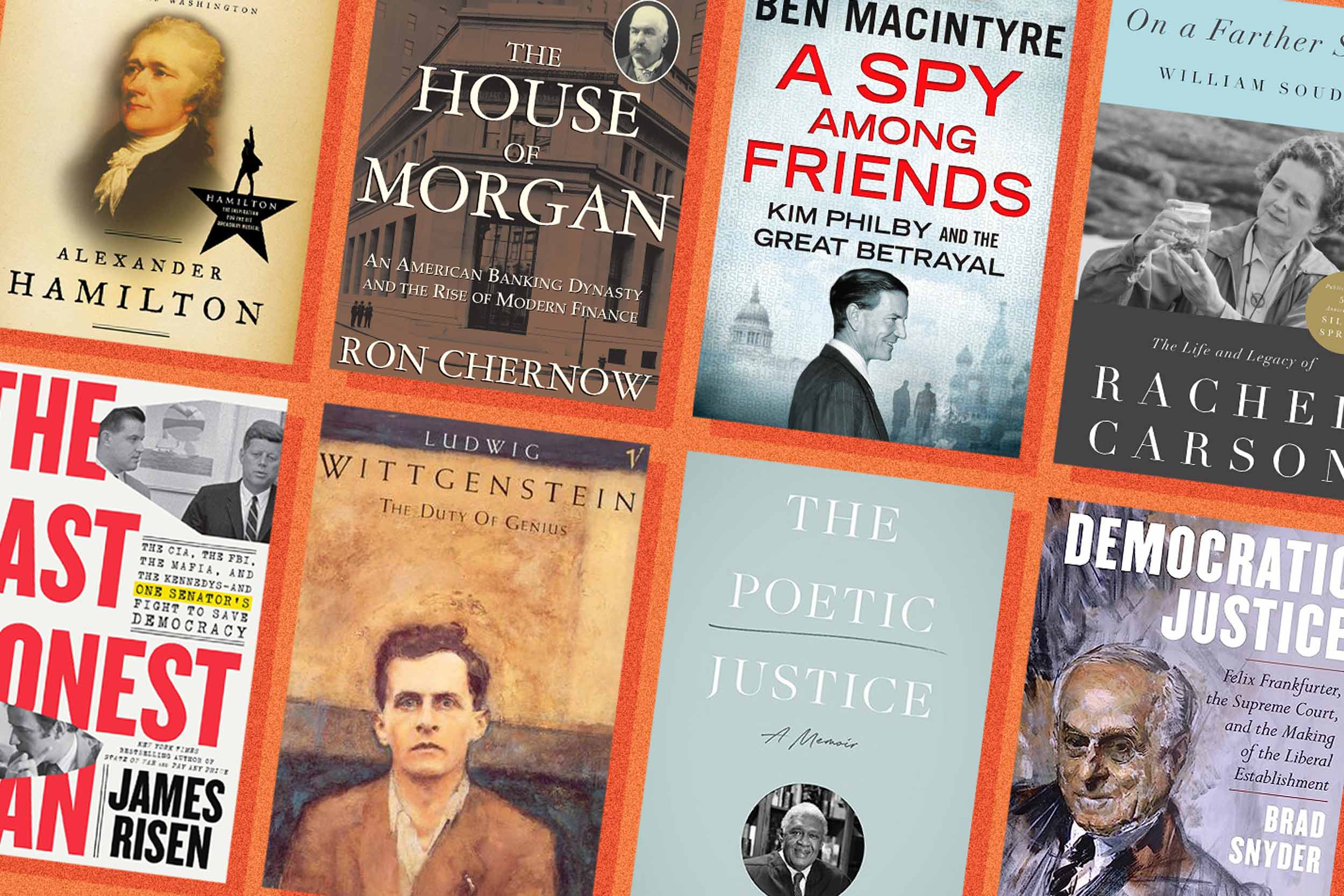Faculty at the University of Virginia School of Law share their favorite biographies for summer reading, from books on a Founding Father and a trailblazing jurist to a banking magnate and an environmental icon.
Danielle Citron
“The Last Honest Man: The CIA, the FBI, the Mafia, and the Kennedys - and One Senator’s Fight to Save Democracy,” by James Risen
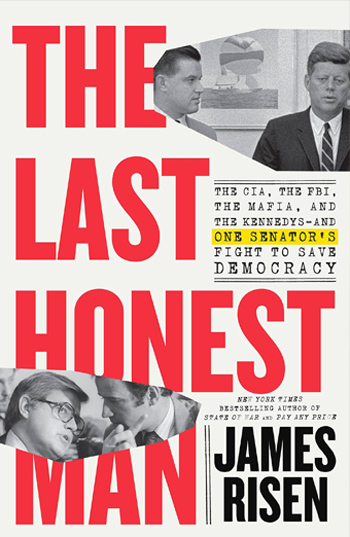
Citron writes and teaches about privacy, free expression and civil rights. She directs the LawTech Center and is author of “The Fight for Privacy: Protecting Dignity, Identity and Love in the Digital Age.”
“I loved the new James Risen book about Sen. Frank Church. It’s a fascinating backstory for the famous head of Senate committees investigating Watergate and FBI overreach: The evolution of his thought on the Vietnam War, on privacy as value that can’t be traded by uttering [the word] ‘safety’ and the bipartisan support [he achieved]. His term as senator from Idaho was fascinating, too!”
Risa Goluboff
“The Poetic Justice,” by John Charles Thomas, and “Outside In: The Oral History of Guido Calabresi,” by Norman I. Silber
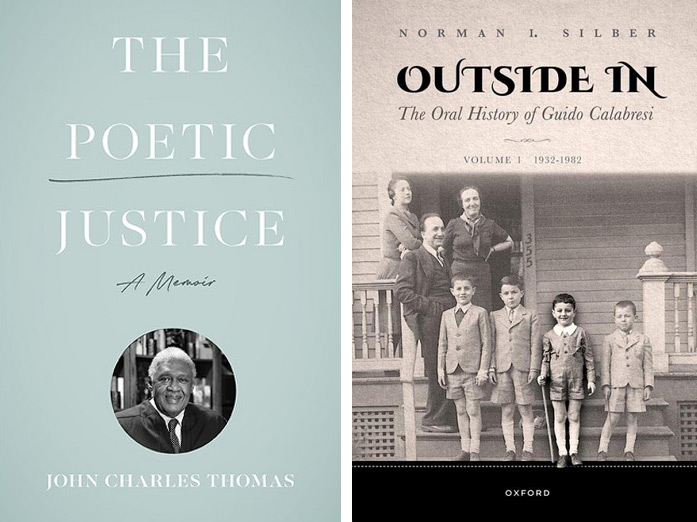
Goluboff, the 12th dean of the Law School, is a renowned legal historian whose scholarship and teaching focuses on American constitutional and civil rights law.
“I recommend two wonderful books about two remarkable judges. John Charles Thomas (School of Law class of 1975) grew up in the segregated South and broke numerous racial barriers, including serving as the first Black justice of the Supreme Court of Virginia after becoming the first Black partner at the law firm of what is now Hunton Andrews Kurth. Guido Calabresi immigrated to the United States from Italy as a child in the years before World War II and served on the faculty and as dean of Yale Law School before joining the U.S. Court of Appeals for the Second Circuit. Reading about the lives and careers of these brilliant and pathbreaking jurists in their own authentic voices is illuminating, touching and deeply inspiring.”
Cathy Hwang
“Crying in H Mart: A Memoir,” by Michelle Zauner
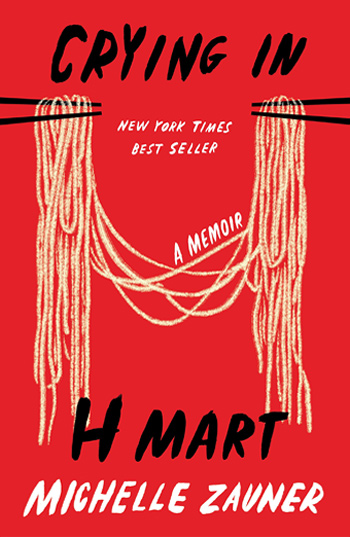
Hwang’s research and teaching focus on mergers and acquisitions, corporate contracts and corporate governance.
“The book is about the Asian American experience. As a kid, my family would regularly drive two hours from San Diego to Los Angeles to buy groceries at 99 Ranch, the big Taiwanese supermarket - an experience that I absolutely hated because it took an entire weekend day. But I now regularly drive two hours to Fairfax to buy groceries at 99 Ranch (and at H Mart) - it feels at the same time like I’m doing what my parents did because I’m old now, and also that I’m forging my own path (because what I’m shopping for and doing there is so different).”
Cale Jaffe
“On a Farther Shore: The Life and Legacy of Rachel Carson,” by William Souder
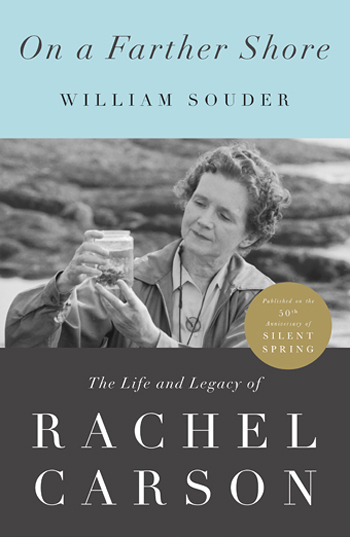
Jaffe directs the Environmental Law and Community Engagement Clinic and serves on the Virginia Coal and Energy Commission.
“It tells the amazing story of a naturalist who might have lived a quiet life as the lyrical writer of a few highly regarded treatises on the ocean (‘Under The Sea-Wind,’ ‘The Sea Around Us’). But then Rachel Carson wrote ‘Silent Spring’ in 1962. It’s the book that sounded the alarm on the harms caused by pesticides and played a vital role in the birth of modern environmental activism. William Souder’s biography explains how ‘Silent Spring’ disrupted the status quo for Carson personally and for every other environmental leader who has followed in her footsteps over the past 60 years.”
Annie Kim
“Ludwig Wittgenstein: The Duty of Genius,” by Ray Monk
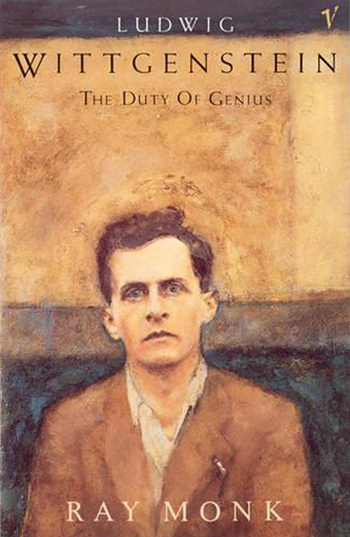
Kim directs the school’s Program in Law and Public Service and is author of the poetry books “Into the Cyclorama” and “Eros, Unbroken.”
“Wittgenstein’s family was every bit as rich and crazy as the Roys in ‘Succession,’ though they were Viennese Jews at the turn of the 20th century with close ties to Brahms and Klimt. Wittgenstein took up philosophy only after rejecting a career as an aeronautical engineer, fought in World War I and taught at Cambridge, among other things. For anyone interested in Wittgenstein’s philosophy or in getting inside the mind of a fiercely original (and, yes, troubled) genius, I’d highly recommend this well-written and accessible biography.”
Edmund W. Kitch
“The House of Morgan: An American Banking Dynasty and the Rise of Modern Finance,” by Ron Chernow
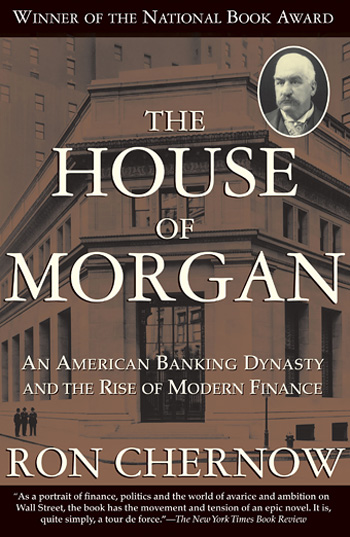
Kitch’s scholarly and teaching interests include agency, corporations, securities, antitrust, industrial and intellectual property, economic regulation, and legal and economic history.
“This book recounts the rise of the Morgan banking dynasty, focusing on J.P. Morgan. It opens a window into a very different world from today, a world in which important banks were partnerships and their credit depended upon the world’s perception of the partners’ wealth and rectitude. Banking regulation has changed greatly since J.P. Morgan’s time. This book provides background that supports informed speculation on the question of whether contemporary regulation has made the world of banking better or worse than it was.”
Sarah Shalf
“Alexander Hamilton,” by Ron Chernow
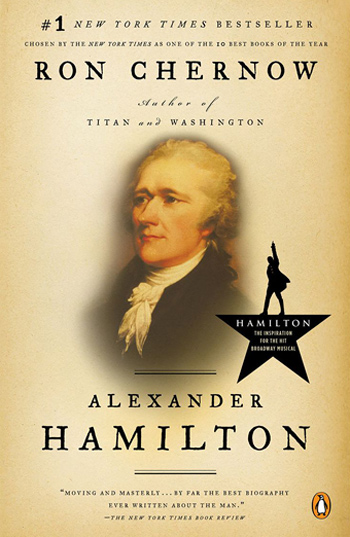
Shalf directs the Community Solutions Clinic and serves as the school’s director of clinical programs.
“If you’ve seen the Broadway hit, you should read the biography on which it’s based. But it’s also interesting as a perspective on many of the issues that we are still dealing with as a country today - the roots of the Civil War in different visions of the ideal economy (including an economy built on slavery), deep political divisions, party politics, the role of the media in politics, etc. And, of course, you should read it because Thomas Jefferson figures prominently - as Hamilton’s nemesis.”
Paul B. Stephan
“A Spy Among Friends: Kim Philby and the Great Betrayal,” by Ben Macintyre
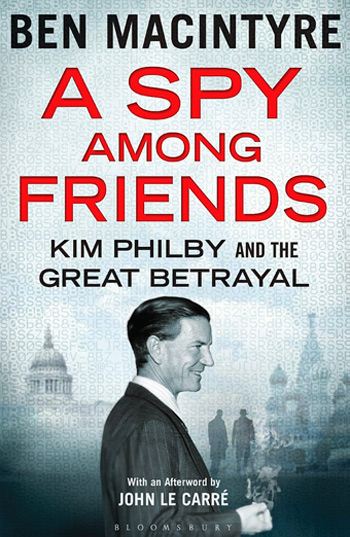
Stephan is an expert on international business, international dispute resolution and comparative law, with an emphasis on Soviet and post-Soviet legal systems.
“‘A Spy Among Friends’ is a compelling account of a sordid story, the betrayal by Kim Philby, a posh and privileged British intelligence official, of his country, friends, colleagues and agents. There are many books on the subject, but this is the best. The book has been made into a television series, but I have not seen it.”
G. Edward White
“Democratic Justice: Felix Frankfurter, the Supreme Court, and the Making of the Liberal Establishment,” by Brad Snyder
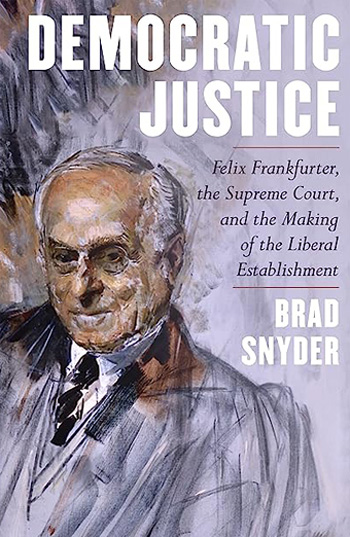
White teaches legal history and constitutional law, and his 20 published books have won numerous honors and awards, including as a finalist for the Pulitzer Prize in history.
“It is a really good example of how to effectively use archival sources. Frankfurter has been pictured by some historians as having doubts about declaring racial segregation in the public schools invalid and thus being a ‘holdout’ for the court’s eventual embrace of unanimity in ‘Brown’ and the companion cases. Snyder’s use of Frankfurter’s correspondence with other justices and with his close associates, as well as other papers of the justices, convincingly demonstrates that from the outset, Frankfurter was a strong supporter of desegregating public schools.”
Media Contact
Article Information
October 7, 2025

